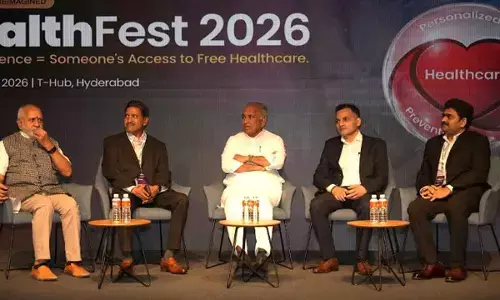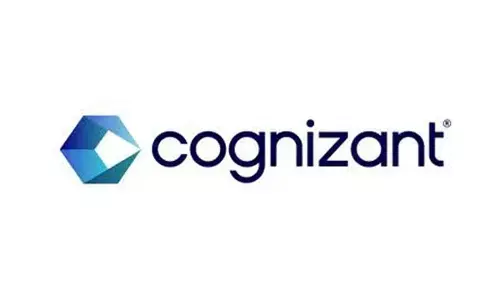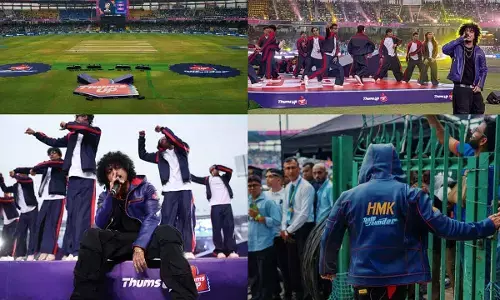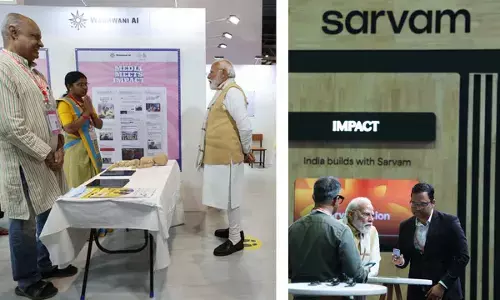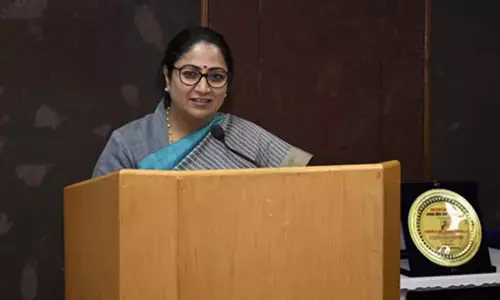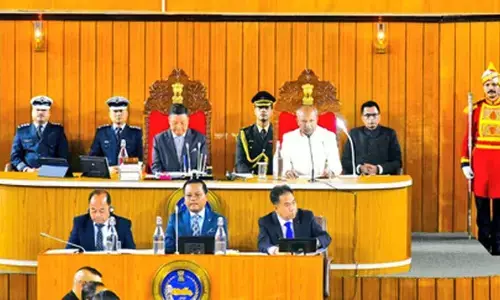Importance of interactive learning, live projects, workshops, masterclasses for engg & tech students

Engineering and technology sectors, generating graduates who are ready for the workforce requires integrating industry interaction, actual projects, practical workshops, and masterclasses.
Engineering and technology sectors, generating graduates who are ready for the workforce requires integrating industry interaction, actual projects, practical workshops, and masterclasses. These components provide exposure to current market trends, improve practical knowledge, and foster problem-solving abilities. Experiential learning will become more important as the Indian economy grows more technologically orientated, helping to prepare students for the ever-changing demands of the modern workforce
In India, the realm of higher education, especially in engineering and technology sectors, is undergoing significant transformation. As new technologies emerge, industries are seeking graduates who possess both theoretical knowledge and practical expertise. To address this increasing demand, educational institutions are integrating hands-on learning experiences into their programs. Engineering education now frequently includes collaborations with industry professionals, real-world projects, practical workshops, and expert-led sessions. These educational components not only enhance students’ technical abilities but also foster essential problem-solving skills and provide valuable industry insights, preparing them for successful careers in their chosen fields.
The Indian government’s National Education Policy (NEP) 2020 which marks a significant shift in the country’s educational landscape, aiming to revolutionize the existing system. also encourages the incorporation of industry collaborations, real-world projects, practical workshops, and expert-led sessions, promoting a more hands-on and application-based educational approach.It promotes partnerships between educational institutions and businesses to ensure that curricula stay current and aligned with technological progress. This approach corresponds well with the increasing need for industry engagement, allowing students to gain direct knowledge from professionals and understand the most recent industry developments and methods.
Interacting with industry professionals provides students with a crucial perspective often lacking in purely academic environments. The rapid evolution of engineering and technology fields outpaces the ability of educational curricula to stay current, and experts from the industry offer insights into cutting-edge trends, tools, and techniques shaping the current market landscape. Students gain exposure to emerging technologies such as artificial intelligence, machine learning, Internet of Things (IoT), and data analytics through various formats including guest lectures, seminars, and webinars.
Moreover, engaging with industry experts helps students connect classroom learning to real-world applications. These professionals share insights into tackling complex engineering problems, managing projects, and fostering innovation, giving students a peek into the practical complexities of industrial work. Such exposure enables students to tailor their academic focus to meet industry needs, thus enhancing their job prospects after graduation. Integrating real-world projects into engineering curricula allows students to apply abstract concepts to practical challenges. Often conducted with industry partners, these projects push students to solve current business issues, enhancing creativity and critical thinking. Whether designing software or building prototypes, live projects promote teamwork, leadership, and collaboration.
Through experiential learning, students develop problem-solving skills directly applicable to the workplace. Moreover, live projects offer valuable networking opportunities with industry professionals, potentially leading to internships and job placements, giving students a competitive advantage in their career paths.
A solid basis in practical skills is necessary for engineering and technology programs, which cannot be obtained only from textbooks. In order to give students the chance to work with the tools, technologies, and equipment they will face in their professional careers, hands-on workshops are essential. For example, workshops on hardware development, coding, robotics, and 3D printing assist students in becoming proficient in these important fields.
Students are guaranteed to comprehend the constraints and difficulties involved in applying academic principles in practical contexts through workshops that provide them with practical exposure. It improves their capacity for problem-solving, prototyping, and design improvement.
Furthermore, workshops frequently centre on industry standards and developing technology, guaranteeing that students stay current with the most recent developments.
In India’s engineering and technology sectors, generating graduates who are ready for the workforce requires integrating industry interaction, actual projects, practical workshops, and masterclasses. These components provide exposure to current market trends, improve practical knowledge, and foster problem-solving abilities. Experiential learning will become more important as the Indian economy grows more technologically orientated, helping to prepare students for the ever-changing demands of the modern workforce. Indian engineering colleges need to keep encouraging business partnerships and giving students practical experience in the classroom if they want to be competitive in the global market.
(The author is Associate Dean JagdishSheth School of Management, Vijaybhoomi University)


